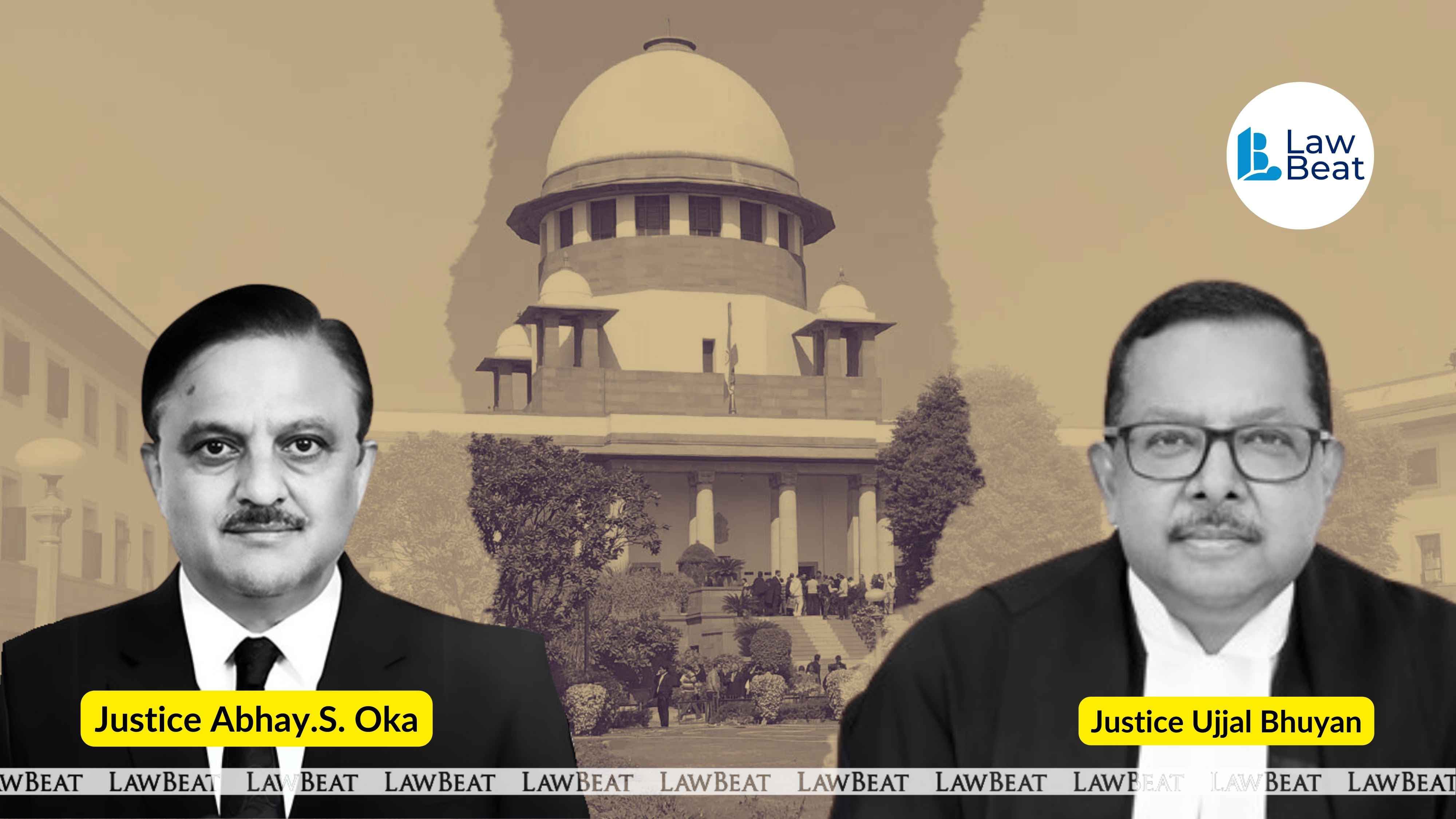'Failure to examine other eye witnesses not fatal to prosecution case,' SC upholds murder conviction

There are no material omissions or contradictions brought on record, court noted dismissing the appeal
The Supreme Court recently upheld the conviction and sentence of life term imposed on four men, including a police constable in a 2001 murder case, finding that the evidence of the three eye witnesses was of sterling quality and, holding that the failure to examine the other alleged eye witnesses will not be fatal for the prosecution case.
A bench of Justices Abhay S Oka and Ujjal Bhuyan dismissed an appeal filed by Tanaji Shamrao Kale and other appeals filed by Ratu, Satu and Maruti.
There were a total of nine accused. The trial court acquitted the accused no. 4 and convicted the rest of them for the offences punishable under Sections 148 and 302 read with Section 149 of the Indian Penal Code. The appellants were sentenced to undergo life imprisonment. The high court confirmed their conviction by judgment on September 24, 2010.
According to the prosecution, on July 18, 2001, the accused assaulted the deceased over the dispute of fetching water from the river for irrigation of the field. One Bajrang (PW-2), who was grazing cattle on nearby land, had also seen the incident of the accused giving blows by swords on the knees, hands and legs of the deceased.
The appellants' counsel contended even according to the prosecution witnesses, some other eye witnesses had seen the alleged incident. However, none of them were examined. The witness, Dadarao claimed that he was a student of 11th standard and he used to have four to five lectures every day from 7.30 a.m. He submitted that, therefore, it was difficult to believe that he had seen the incident between 10.15 a.m. and 10.30 a.m. He submitted that the witness did not state in his police statement that after attending one class, he skipped the rest and returned home. He submitted that, therefore, his testimony deserved to be ignored.
The counsel also said Tanaji was doing duty with the crime branch for two days when the incident had happened.
The respondents' counsel, on the contrary, submitted that the role ascribed by PW-1 and PW-2 to the accused, including the appellants, had been established in their testimony, and no material omissions and contradictions were brought on record. He submitted that evidence of PW-10 indicated that on the date of the offence, a certain important duty was assigned to the appellant, but he was not present at the police station on those two days. Therefore, the defence of an alibi was not established.
The bench said, "After carefully perusing the cross-examination, we find no material omissions or contradictions have been brought on record regarding the role ascribed to the appellants. The only omission brought on record is that the statement of the witness recorded under Section 161 of the Code of Criminal Procedure, 1973 does not mention that after attending one class, he came to the house on the date of the incident. We do not think that this omission is so relevant as to amount to contradiction as provided in the explanation to Section 162 of CrPC".
The court pointed out, as far as PW-2 was concerned, his version in the examination-in-chief was the same as what was stated by PW-1. He claimed that he stated before the police that the accused were assaulting the deceased by sword. However, the statement regarding the use of the sword was an omission. The statement that he saw the accused assaulting the deceased was not an omission. There were no material omissions or contradictions brought on record as far as this witness was concerned, it said.
The bench also noted that the prosecution witness Vasant Zunjare, police inspector, stated that from July 18 to July 19, 2001, some important duty was assigned to the accused no 9 Tanaji. The witness admitted that accused Tanaji was not in the police station on those two days. The accused no 9 had not adduced evidence to show that he was elsewhere when the incident occurred. Therefore, the accused no. 9 Tanaji's alibi plea could not be accepted.
The court found the testimony of PWs-1, 2 and 5 as regards the role ascribed to the accused nos. 1 to 7 as trustworthy. The testimony of PWs-1 and 2 on the role ascribed to the accused no. 9 was also reliable. The accused no. 4 was acquitted by the trial court as he proved the defence of alibi. Hence, the acquittal of the accused no. 4 was of no help to the other accused, the court opined.
"It is true that there may be other eye witnesses who were not examined. But PW-2 is not a witness who was related in any manner to the deceased. He had no enmity against the accused. As the evidence of the three eye witnesses is of sterling quality, the failure to examine the other alleged eye witnesses will not be fatal for the prosecution case," the bench said.
Finding no merit, the court dismissed the appeals. It directed Tanaji, granted bail by the top court on May 10, 2011, to surrender within one month to serve the remaining sentence.
The court clarified if accused nos 1, 2 and 5, who have challenged the judgment, have already undergone the sentence and have been released, the question of the said accused being taken to custody will not arise. However, if they have not been released after undergoing the sentence, they must undergo the remaining sentence, it said.
Case Title: Tanaji Shamrao Kale Vs State of Maharashtra
